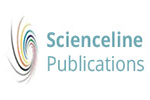(2023) The Modulation of In Vitro Differentiation of Monocyte-derived Macrophage by Trypanosoma evansi Antigens in the Dromedary Camel. World's Veterinary Journal. pp. 587-594. ISSN 2322-4568
|
Text
WVJ13(4),587-594,December25,2023.pdf - Published Version Download (472kB) |
Abstract
Studies on the camel immune response to Trypanosoma (T.) evansi, the causative agent of Surra, are very limited. In the present study, flow cytometry was employed to investigate the modulatory effects of different T. evansi antigens on the in vitro differentiation of camel blood monocytes into macrophages. For this, in vitro, separated camel monocytes were differentiated into monocyte-derived macrophages (MDM) in the presence or absence (control) of formalin-fixed (inactivated) T. evansi whole parasite (T. evansi group) or the purified Ro Tat 1.2 antigen (Ro Tat 1.2 group). The analysis of the antimicrobial functions of MDM (phagocytosis and reactive oxygen species (ROS) production) revealed reduced phagocytosis activity of camel MDM generated in the presence of T. evansi antigens. In addition, a lack of ROS-response was observed in camel MDM generated in the presence of T. evansi antigens after stimulation with PMA. These results indicated a compromising effect of T. evansi on the innate defense mechanisms in camels. Phenotypic analysis revealed the upregulation of major histocompatibility complex (MHC) class II molecules together with the lower abundance of the scavenger receptor for haptoglobin�hemoglobin complexes (CD163) on MDM generated in the presence of whole T. evansi parasites, indicating a polarizing effect of T. evansi on the differentiation of camel monocytes into an M1 phenotype. However, the reduced antimicrobial functions of these cells argue against their pro-inflammatory nature. Although both MDM generated in the presence of whole T. evansi antigens or their purified Ro Tat 1.2 proteins indicated similar expression levels of CD14 and MHCII molecules, the different abundance of the cell surface molecules CD172a, CD163, CD45, and CD44 indicated different phenotypes of the two MDMs. The results of the present study revealed compromising effects of T. evansi antigens on camel macrophages differentiated in vitro from blood monocytes. Whether these effects contribute to the in vivo pathogenesis of T. evansi in camels remains to be determined in future studies. © The Author(s) 2023
| Item Type: | Article |
|---|---|
| Keywords: | antigen; CD163 antigen; CD172a antigen; Hermes antigen; major histocompatibility antigen class 2; reactive oxygen metabolite; receptor type tyrosine protein phosphatase C; unclassified drug, adult; animal cell; animal experiment; antigen expression; Article; cell differentiation; cell isolation; controlled study; dromedary; female; in vitro study; in vivo study; macrophage; male; monocyte; monocyte derived macrophage; nonhuman; pathogenesis; phagocytosis; phenotype; surra; Trypanosoma evansi; upregulation |
| Subjects: | S Agriculture > SF Animal culture |
| Divisions: | World's Veterinary Journal (WVJ) |
| Page Range: | pp. 587-594 |
| Journal or Publication Title: | World's Veterinary Journal |
| Journal Index: | Scopus |
| Volume: | 13 |
| Number: | 4 |
| Publisher: | SCIENCELINE |
| Identification Number: | https://doi.org/10.54203/SCIL.2023.WVJ63 |
| ISSN: | 2322-4568 |
| Depositing User: | Dr. Alireza Sadeghi |
| URI: | http://eprints.science-line.com/id/eprint/951 |
Actions (login required)
 |
View Item |


 Dimensions
Dimensions Dimensions
Dimensions